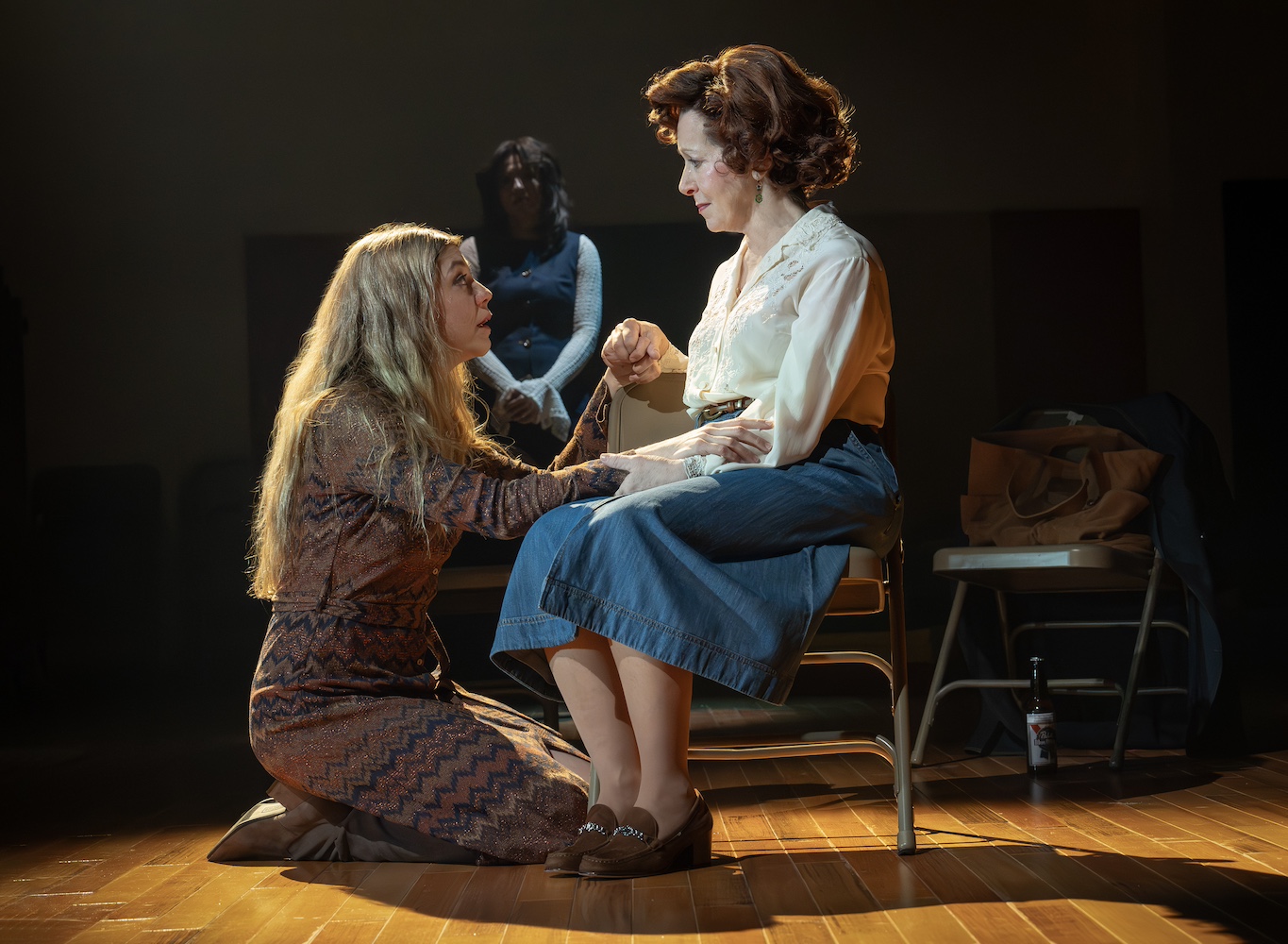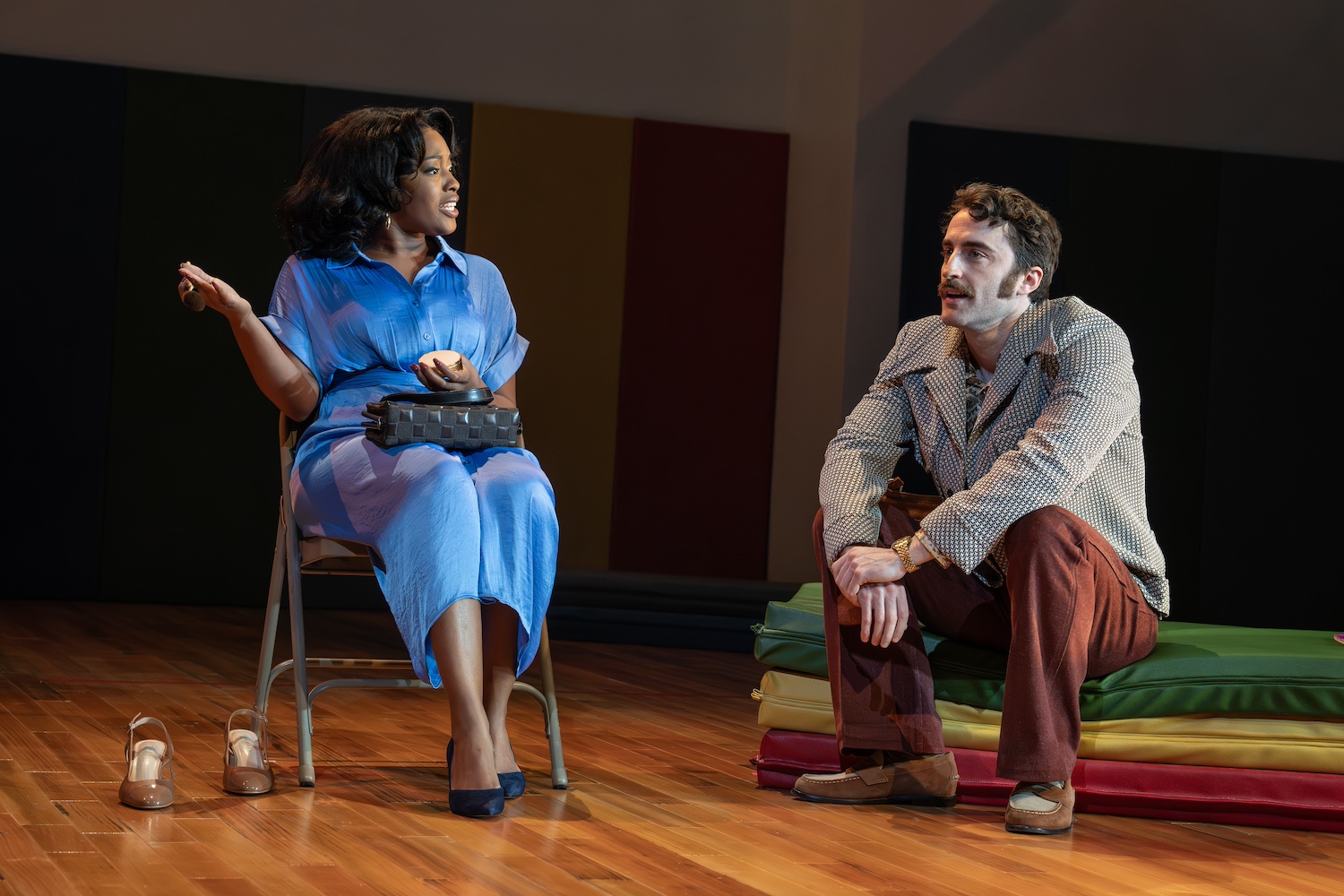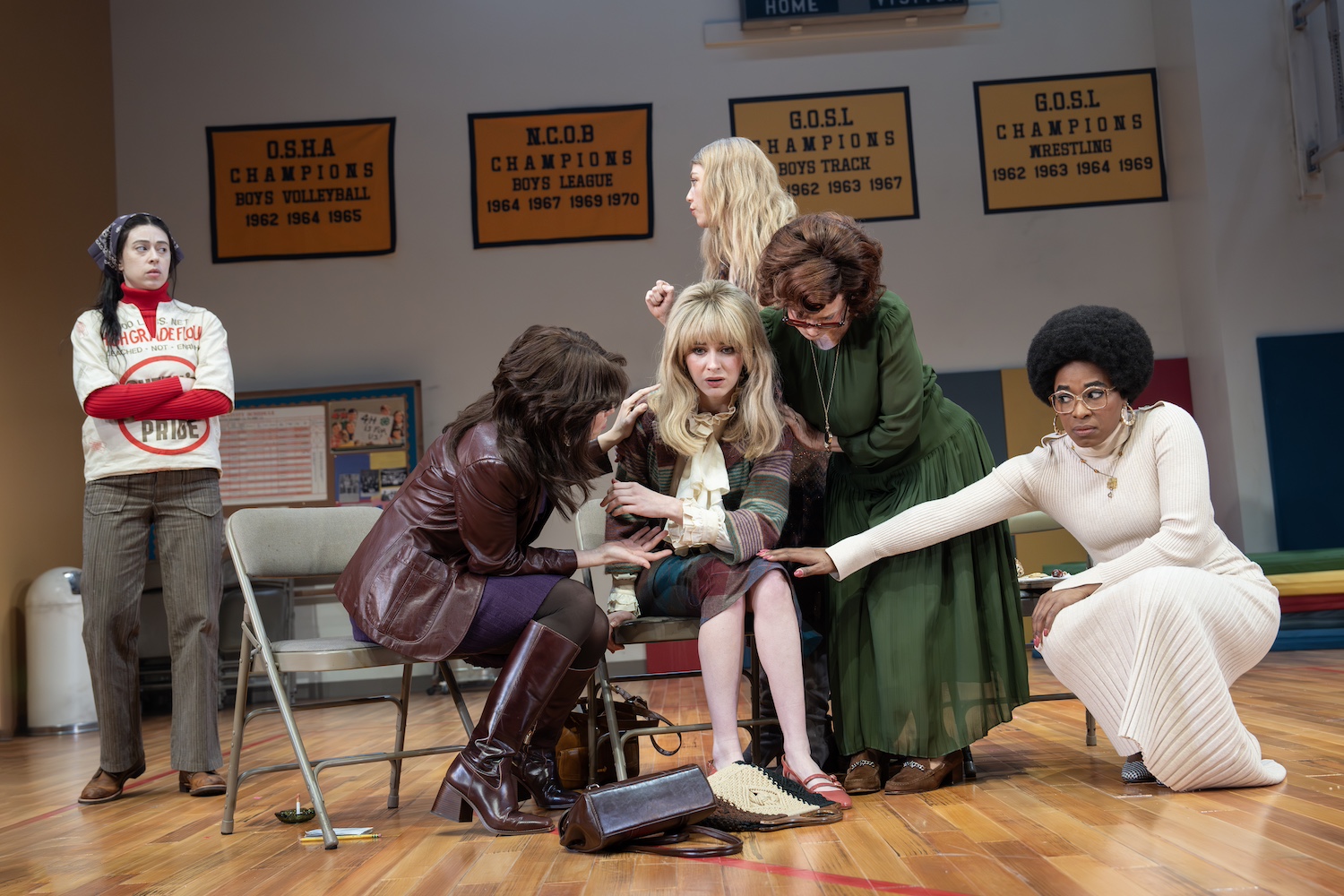***/***** (three stars out of five)
Have you ever longed to reconnect with a lost parent?
It’s a regret many of us share— the conversation we never had with a now-deceased mother or father, to understand them better, to learn things about them we never knew, to obtain answers to questions about who they really were, or to reconnect with them once again in a profound, meaningful way.
It’s that longed-for event, the one we never had, that dramatist Bess Wohl has made into an absorbing new play with a unique dramatic structure.
Lizzie, the protagonist in Liberation (played by Susannah Flood), is determined to find answers to the life of a mother she has recently lost. “It’s a memory play,” she says, very much as Tom Wingfield introduced Tennessee Williams’s immortal The Glass Menagerie, when he sought to reconnect with his mother and sister.
After she introduces us in the present, capturing our attention, Lizzie journeys back in time to a town in Ohio in 1970, when her mother organized a women’s group in a basement basketball court at the local recreation center. She assumes two roles simultaneously, defined by Qwen Jean’s changing light cues: Lizzie, the play’s narrator in the present time; and Lizzie, her mother in 1970. She announces: “I’m my mom,” a journalist from Chicago (who had to fight to report on weddings and obituaries in a local paper), with a degree in International Relations, disillusioned with civil rights and anti-war activism. Lizzie/mother is looking to find a new cause—namely, women’s liberation.

So Lizzie/mother invites the participants of her “revolutionary women’s group” on to the stage and introduces them to the audience. There’s Susan (Adina Verson), a former SNCC member (Students’ Nonviolent Coordinating Committee) and unemployed radical who lives in her car with a live bird as a companion. There’s Celeste (Kristolyn Lloyd), Radcliffe class of 1963, a book editor specializing in feminist issues and Black women. Next is Margie (Betsy Aidem), the oldest in the group, a beaten-down housewife who dreams of stabbing her husband. Then there’s Isidora (Irene Sofia Lucio) of Sicilian birth, a film production assistant, also a former SNCC member, now an aspiring activist for women’s issues. Finally, there’s Dora (Audrey Corsa), who came to the group by accident (she thought it was a knitting circle).
The group meets weekly for several years in the 1970s. As Lizzie/narrator explains to us, she is tracking down the ones who are still alive today, because, as she says, “I have a lot of questions about my mom.”
Over several years, we watch the women evolve as they struggle to grow and change, supported by the group. Dora confronts her boss, at a store where she works, who has promoted a man (instead of her) to whom she refuses to report. Margie makes a list of all the household chores, demanding that Burt (her insensitive husband) share in the work. And so on. Each week they choose a topic to discuss: children, aging parents, self-image, money, men who have assaulted them. They create a “wo-manifesto” for their Women’s Liberation Project, the name they’ve given their group. They test out theories of feminism, hoping to outdo Betty Friedan. Isidora (the activist) wants them to join in a strike and a march for equality. Relationships grow. Celeste (the editor) reads Susan’s radical writings; Susan eventually moves in with her. Tensions grow, too: Isidora accuses Celeste of being a radical lesbian.

At the top of Act II, Lizzie looks back on an event during the group’s third year when, at one meeting all the members of the group strip naked on stage and talk about what they love and hate about their own bodies. “It’s insane my mother ever did that,” cries Lizzie/narrator in dismay. (Frankly, the overly long scene seems forced and gratuitous, distracting from the development of the play’s most compelling theme—namely, Lizzie’s quest to know her mother.)
Ultimately, Lizzie returns to telling her mother’s story. She gives us quite a surprise at the end of Act I, when the solo male character in the play (Bill, played by Charlie Thurston) accidently comes into the room to shoot baskets on one of the group’s breaks. “That’s my dad,” Lizzie/narrator introduces him, in one of the cleverest end-of-Act I lines I’ve heard in a long while.
By mid-Act ll, Bill proposes to Lizzie/mother (Lizzie/narrator declines to play that scene, so a new character named Joanne, played by Kayla Davion, assumes the role). At first, Lizzie/mother refuses, then finally accepts the proposal. The news of her engagement shocks the members of the group, precipitating a crisis and challenge to her leadership. Subsequently, as Lizzie/narrator explains, her mother did marry Bill and move to New York. The group eventually dissolves.
“I want to rewrite history!” Lizzie/narrator declares toward the end of the play, introducing the final scene where she invites Margie (the group’s oldest member) to play her mother opposite Lizzie/narrator. She finally gets the opportunity to ask the questions about her mother’s life that she has longed to ask.
In a season with numerous plays with all-female casts, including Suffs, The Hills of California, and The Blood Quilt, we are being inundated with themes related to women’s issues: history, the family, politics, and so on. Liberation, the newcomer in this group, complements the season with yet another perspective—namely, women’s liberation in the 1970s.

But rather than the feminist content, it’s the ultimate quest of Lizzie/narrator to understand her mother that I find to be the most compelling and deeply moving theme of Liberation. My admiration goes to Bess Wohl for the masterful structure of a play that goes back and forth between two eras, with the protagonist playing three roles, in fact: herself in the present, her mother in the past, and her present self, questioning the women in the past. Skillfully directed by Whitney White, it shows the power of the theater to make the connections we long to make and, ultimately, to liberate us.
Liberation. Through March 30 at the Roundabout’s Harold and Miriam Steinberg Center for Theatre’s Laura Pels Theatre (111 West 46th Street, between Sixth and Seventh Avenues). www.roundabout.org
Photos: Joan Marcus











